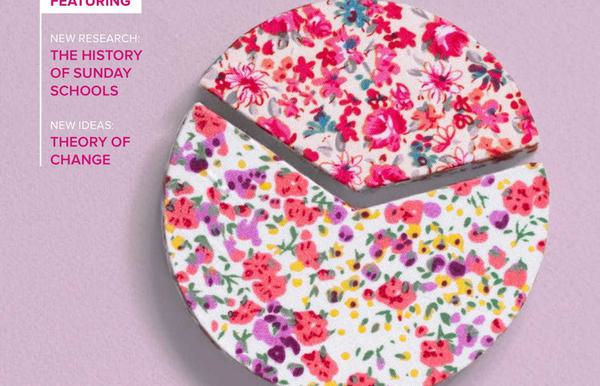Director of Research Dr Lucie Shuker explores what 'theory of change' models are and why they could significantly benefit youth ministry.
'So, what do you do?'
Of all the questions we have up our sleeves when meeting new people, this one is not the most interesting. And yet, when I have the chance to really ask someone in detail about what they do, I often find their answers fascinating. If I had the chance, I would want to ask you not just what you do, but why, and how. Why this way, and not that way? What happens when you do that? What doesn’t happen? Has that always been your experience?
‘What do you do?’ is at the heart of evaluation – one of my tasks as the Director of Research at Youthscape. It’s a piece of work most of us inevitably have to get to grips with. Not just because funders want to know whether their money has done any good, but because, at its best, trying to think about how our work improves young people's lives can be an invigorating process that forces us to develop more critical self-awareness about what we do. Nevertheless lots of evaluations fall at the first hurdle because they don’t really know what it is they are evaluating. For all the energy, creativity and impact that youth workers have, it’s surprising how much of the thinking behind the work is stuck inside people’s heads, and not articulated in any formal way.
I’m a fan of theory but not just the abstract models that try to summarise everything in a neat framework. I like the kind of every-day theorising that is about reflecting often and well on what is happening in your work. ‘Theory of Change’ approaches are among the most popular ways of doing this. It’s a term that includes a range of models, templates and frameworks, of differing quality. At its core though, it’s an attempt to articulate the logic behind a project. Whatever particular activities you undertake, there’s probably a reason. Some rationale that led you to do one thing over another because that is more likely to be effective with the particular young people you serve. A theory of change allows you to lay that out for others to see, making clear the thinking behind your efforts. A good theory of change should move beyond lists of activities, resources and outcomes, and begin to identify outcome chains – the causal links that tell the stories of how change happens.
So instead of ‘Through our drop-in, young people’s horizons widen’, you might say, ‘Attending drop-in on ‘No-phone Friday’ means young people practice holding face-to-face conversations with adults. As a result, they are more confident expressing their opinions and thoughts, and some end up taking opportunities they might have been afraid of engaging in before’. At their best, these tools provide a framework for thinking clearly about what you do, and why - not leaving out any of the steps along a journey of change. An advantage of learning to use these tools is that. while very few youth projects have the resources to do 'impact evaluations', you can at the very least tell a coherent story of how you think you are making a difference. And that's true even if you really dislike the idea of evaluations, outcomes and impact.
These stories, or theories of change also give us a way to acknowledge how contexts constrain the change that is possible. We can use these tools to highlight the ways that young people’s wider experiences and backgrounds affect the work we do with them and highlight where bigger change is needed. It's all very well individual youth workers working hard to 'raise aspirations', but if there aren't good quality opportuniites for young people locally, those aspirations are likely to be disappointed. Theories of change give you an opportunity to draw attention to the assumptions people make about the impact its possible to have, and how the wider environment works with us or against us, in creating change.
Be aware though that there aren’t many examples out there that integrate a spiritual dimension, alongside social or psychological processes – an interesting challenge for Christian youth workers who want to acknowledge that God might be up to stuff, alongside them.
Have you ever tried to integrate spiritual development into a theory of change? I'd love to hear from you.
Where next?
If you’re new to theory of change, take a look at the Centre for Youth Impact website which links to a short introductory video.
If you’re already familiar with the concept, NPC have a publication that highlights some of the strengths and weaknesses of different approaches, and tells you how to start creating your own.
And if you feel pretty suspicious about the whole lot, you'll enjoy the next edition of The Story (2018, Vol. 3) which has an article from Dr Tania de St Croix on her research project Rethinking Impact.




